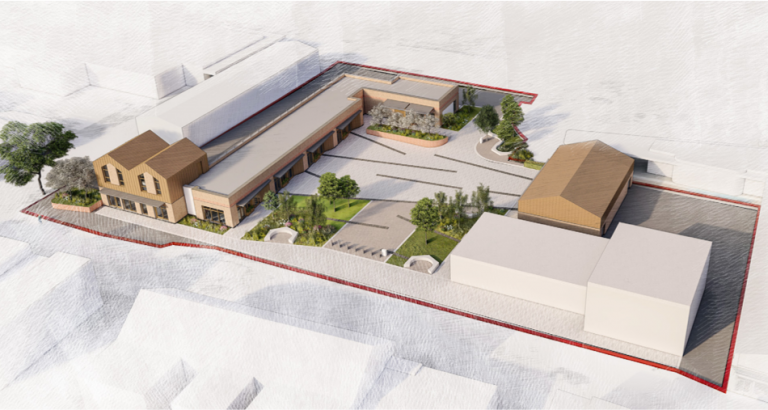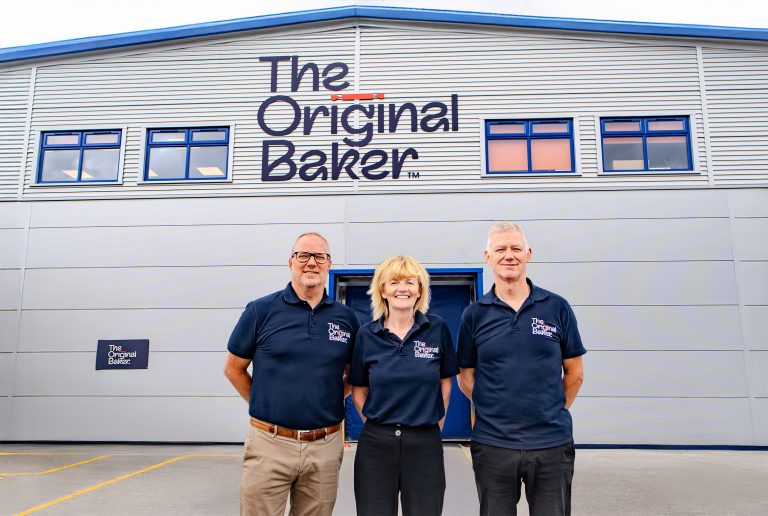Sheffield solicitors take on 10k for four legged friends
Dewsbury bed manufacturer expands with new jobs and NBF membership
Adjust-A-Bed, a Dewsbury-based electric adjustable bed manufacturer, is expanding operations and recruiting new staff as it launches a new product range. The company plans to hire five full-time employees this autumn and additional staff throughout 2026 to meet growing demand. Founded five years ago, Adjust-A-Bed currently employs 35 people and has recorded a sales increase exceeding 25% on the previous year, while expanding gallery partnerships with independent UK retailers.
The firm produces adjustable beds commonly used by people with chronic conditions, including arthritis and back pain, and is now also targeting younger customers seeking adjustable beds as lifestyle products. The new range features redesigned bed bases and additional mattresses.
Adjust-A-Bed recently completed the audit process to join the National Bed Federation (NBF), the UK and Irish trade association for bed manufacturers and suppliers. Membership provides the company with a platform to increase its sector presence and participate in networking events.
The business emphasises rapid order fulfilment, with customers able to receive beds in 10–14 days through its retail network. The company cites the local West Yorkshire workforce as a key factor in its growth, benefiting from skilled candidates and low staff turnover.
Pepperells acquires historic Yorkshire law firm
Pepperells Solicitors has reached an acquisition agreement with Elmhirst Parker Solicitors, a Yorkshire-based firm tracing its origins to 1793. The deal covers the full business and 53 staff members and is scheduled to finalise in September 2025.
Elmhirst Parker currently operates four offices across Barnsley, Selby, Royston, and Sherburn in Elmet, generating an annual turnover of £2.6 million in 2024/25. Pepperells, established in Scunthorpe in 1985, employs 180 staff, including 80 fee earners, and maintains offices in 16 towns and cities across the UK, with particular strength in the North of England. Its services cover residential property, wills and probate, corporate and commercial law, dispute resolution, criminal law, family law, and broader legal support for individuals and businesses.
The acquisition is expected to enhance operational standards and compliance while integrating the expertise of both firms. Elmhirst Parker’s offices will temporarily operate under the name Pepperells, incorporating Elmhirst Parker.
Pepperells has previously expanded through acquisitions, including Ivesons Solicitors in 2009, Myer Wolff Solicitors in 2014, and staff from Payne & Payne in 2021. Elmhirst Parker, originally Tyas & Son, retains a long-standing reputation in family, residential, commercial, and agricultural law. The merger positions both firms to combine historic legal experience with modern, customer-focused practice across Yorkshire and beyond.
Dinnington town centre redevelopment cleared for take-off
Rotherham Council has received approval from the Government’s Planning Inspector to acquire key properties in Dinnington town centre through a Compulsory Purchase Order. This clears the way for a £12 million regeneration of the high street, including demolition of derelict buildings, creation of a new town square, and development of purpose-built commercial units.
The scheme also includes upgrades to the outdoor market, pedestrian routes, and public spaces, with the goal of enhancing safety, accessibility, and sustainability. Contractor appointments are expected early next year, with construction to follow.
The project forms part of Rotherham Council’s broader strategy to revitalise town and village centres across the borough. The £4 million Our Places Fund is supporting improvements to key gateways into principal towns and villages, while in Wath, new commercial spaces, enhanced green areas, and a modern library are under development.
Recent investment in Rotherham town centre includes the £47 million Forge Island leisure hub, which has added restaurants, cinema, and hotel facilities. Public realm projects such as Riverside Gardens are also ongoing. Additional measures across the borough include the launch of a dedicated Street Safe Team to improve safety and a roadside cleansing team targeting key routes and gateways.
The Dinnington scheme is expected to create new business opportunities, attract footfall, and support events within the town centre.
Major North Yorkshire expansion for The Original Baker with multi-million pound investment
Henry Boot Construction sold to company formed by management team
Henry Boot has agreed to sell Henry Boot Construction (HBC) to PWS Construction Limited (PWS), a company newly formed by the HBC management team, for an initial consideration of £4m. The transaction also provides for additional payments to Henry Boot in the future based on certain performance criteria.
Under PWS ownership, the business will be known as HBC Construction Group. The transaction will offer HBC management greater autonomy to diversify and expand the order book as well as enhance HBC’s position in the construction market, than would be possible if the business remained within Henry Boot.
The deal allows Henry Boot to focus on its strategic priority areas of high quality land, prime property development and premium homes. Henry Boot noted that HBC is not part of the group’s medium term growth strategy and has made only a small contribution to profits. The transaction will also simplify the group’s structure and investment case.
During the year ended 31 December 2024, HBC generated £49.7m of revenue with an operating loss of £2.7m in the consolidated financial statements of the group. Following significant restructuring undertaken, including the appointment of the new management team, and with 94% of this year’s order book secured, it is expected the business should break even for FY 25.
HBC has extensive experience in both the public and private sectors, including major projects such as the £200m regeneration of Barnsley town centre, and The Cocoa Works, a £57m residential development in York.
Tim Roberts, CEO at Henry Boot, said: “The sale of HBC which we are announcing today allows Henry Boot to further its strategic focus on high quality land, prime property development and premium homes. It also enhances prospects for long term growth with a more focussed portfolio of activities with greater synergies.
“While HBC’s contribution to the group is relatively small, it is a well established business with a strong track record of delivery and an excellent management team and we wish them well for the future.“
Huddersfield school project set to double capacity for SEND students
Construction has started on a purpose-built special school in Deighton, Huddersfield, designed to accommodate children and young people with Social, Emotional and Mental Health (SEMH) needs. Joseph Norton Academy will relocate from Scissett to the former Deighton Centre site on Deighton Road.
The new facility is designed to support learners aged 4 to 18 and will increase the school’s capacity from 63 to 132 places. The expansion introduces Key Stage 1 and Key Stage 5 provision and co-educational opportunities across a wider age range. Its central location aims to reduce travel times for students and improve access via public transport.
The development incorporates input from current pupils to shape learning environments that meet their specific needs. The project is led by Wellspring Academy Trust in partnership with Wates Construction and the local council.
The upgrade addresses limitations at the existing semi-rural campus, whose buildings are outdated and grounds restrict future expansion. The new school aims to provide a modern, inclusive learning environment and meet increasing local demand for specialist school places.
Construction is expected to create a high-quality educational setting that supports student development, eases pressure on families, and delivers long-term operational efficiencies for the council.
The project reflects a coordinated effort between education providers, construction partners, and local authorities to expand specialist provision in Kirklees and enhance opportunities for children with SEND.
Lincolnshire Co‑op invests £4m in outlet upgrades
Lincolnshire Co‑op has invested over £4 million in upgrading 31 of its outlets across food, funeral, pharmacy, and post office operations since launching its cyclical refresh programme one year ago.
The programme aims to modernise around 40 trading outlets each year with an annual investment of approximately £5 million. Each site undergoes a major refit every 12 years, including the replacement of equipment such as fridges and shelving. Cosmetic mid‑cycle updates take place every six years to maintain a refreshed look.
The Carlton Centre Food Store and Post Office in Lincoln received a full cyclical refresh alongside 14 other food stores and seven additional post offices, with £524,000 allocated to the upgrades. Refits also included five pharmacies, two funeral homes, and Lincolnshire Co‑op’s Louth Travel branch, the first of 13 travel agencies to be revitalised under the programme.
Upgrades reflect local community needs, with new product ranges and services added based on outlet location. Examples include frozen meals, premium coffee machines, gifting ranges, and interactive beverage offerings.
The programme is designed to strengthen customer satisfaction and loyalty while delivering operational improvements. Feedback from colleagues and customers has been incorporated to refine each refresh and support continuous enhancement across the Co‑op’s network.
Aldi to invest £19m in Lincolnshire as part of UK expansion
Aldi is planning to spend approximately £19 million in Lincolnshire over the next two years as part of a wider £1.6 billion expansion across the UK. The investment will support the opening of new stores and the development of distribution centres.
The supermarket is seeking sites in Cleethorpes and Lincoln for potential new stores. Currently operating 1,060 locations, Aldi aims to grow its network to 1,500 stores nationwide.
The expansion is expected to generate thousands of jobs and increase opportunities for British suppliers. The move reflects continued demand for affordable grocery options across the UK.
University of Sheffield leads in research partnerships and commercial innovation
The University of Sheffield has been recognised in the 2025 Knowledge Exchange Framework for its collaboration with businesses, public bodies, and community organisations. The assessment highlights the University’s success in translating research into practical solutions, supporting regional economic growth, and engaging diverse stakeholders.
Sheffield ranks highly for commercialising research and generating intellectual property. Over the past five years, the University has launched 29 spinout companies, including Phlux Technology, which develops infrared sensor systems, and Crucible Therapeutics, a biotechnology firm that recently secured £2.3 million from Innovate UK to develop treatments for Motor Neuron Disease.
The University’s partnerships extend to multinational companies including Boeing, Rolls-Royce, McLaren Automotive, and GE Healthcare, where collaboration focuses on advanced manufacturing, clean energy technology, and medical innovation, such as AI-powered MRI systems.
Sheffield also engages with community and public sector partners. Initiatives include CiviAct, addressing inequalities among minoritised children and young people, and Sheffield Policy Campus, which combines student development with civil service collaborations. The University has contributed to urban regeneration projects, cultural festivals, and initiatives like the £15.8 million Future High Streets Fund.
Runway Park, a 100-acre expansion of the University’s Innovation District, forms a hub for investment and job creation, leveraging research and industry partnerships to stimulate local economic growth. The KEF results underline Sheffield’s combined focus on commercial, social, and cultural impact, positioning it among England’s leading institutions for knowledge exchange.












